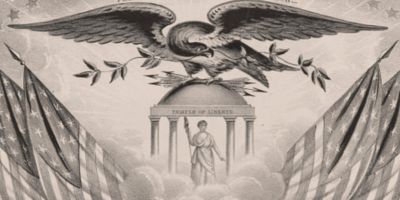By Marcus Flores
Wrapped ‘round the quarter acre plantation were 12-foot fences topped with razor wire. It was monitored by—although armed guards were preferable—24-hour infrared surveillance cameras. Along with a library of documentation, this fortress was required by the Drug Enforcement Administration (DEA) for the University of Hawaii’s 1999 permit to grow industrial hemp, a plant which has no psychoactive value.
The Controlled Substances Act of 1970 classified hemp alongside marijuana (and heroin and cocaine) as a Class I substance. Yet hemp, a subtype of cannabis sativa, was bred specifically to minimize the THC content as well as to maximize the strength of its fibers. Probably due to the cost of federal compliance, Hawaii did not opt to renew its permit, and so far it has been the only state to submit to the regulations of a government in denial about the medical as well as industrial applications of certain flora.
Common sense was at one time more prevalent in United States agriculture. In fact, hemp once made Lexington the center of the textile universe before it became illegal. Now, the United States must import from Canada the crops its Founding Fathers grew.
Historical ironies aside, Kentucky politicians are beginning to take matters into their own hands. State Senator Perry Clark (D-District 37) is trying to put the cart before the horse with his 2013 encore of the Gatewood Galbraith Medical Marijuana Act. Cannabis was, interestingly enough, legal during the 10-year period when alcohol was federally prohibited; but times have changed, and Clark’s bill has little chance of success in a state already saddled by prescription drug abuse.
In related news, Senator Rand Paul has prioritized the more realistic mission of industrial hemp this legislative season. Though one would like to see Paul flatten some of his republican wrinkles with a libertarian iron, the focus on hemp provides welcome relief from perennially contentious issues such as taxes or spending cuts. Still, someone will find something wrong with even the most sensible legislative suggestion. The praiseworthy hemp movement has to battle overly cautious police, who have the same opinion on industrial hemp as they do medical cannabis: that legitimate growers will be difficult to distinguish from illegal operations.
Whether or not law enforcement officers would be good at delineating the two plants, cultivating them together is, agriculturally speaking, a bad idea. An informative paper from Purdue University describes the narcotic plants as “low, highly branched, and grown well-spaced,” perhaps like vegetables. Hemp plants, on the other hand, grow in dense clusters and are comparatively taller with limited branching. Suppose some sneaky farmer chose to grow pot alongside his hemp? Hemp pollen, which can travel some 12 kilometers, would pollinate—and hence ruin—any narcotic plant within that radius. Far from aiding illegal growers, hemp would appear to jeopardize their crop.
Threatening Kentucky are the same security measures that stifled Hawaii’s industrial hemp production. Should Kentucky submit to the unchanged rigmarole as Hawaii, the additional cost of the DEA’s security measures would likely have most farmers saying to hell with hemp before they even plant it—when, actually, what they should be saying is to hell with federal law.
Some 18 states have decided to legalize medical cannabis; notably, Colorado and Washington were not greeted by legions of DEA agents when they legalized cannabis for recreational use. The federal government has snarled in disapproval, but it otherwise remains a lame beast that cannot seriously threaten the people’s demand for a substance that is significantly less harmful than alcohol. Not that Kentucky farmers are pleading to grow drugs; federal legislators simply agree that state policies would most quickly advance the hemp agenda at a national level.
So what is to fear? Farmers express concerns about the market potential. Yet capitalism, a risk-reward system, cannot guarantee that an entrepreneurial undertaking will be without risks. Edward Gibbon wrote long ago that the foundation of manufacturing was agriculture, and economic conditions seem quite favorable for hemp. James Comer, Kentucky’s Agriculture Commissioner, has reported that three companies have already approached him about business opportunities in Kentucky should the state choose to ignore the federal ban. Since the hemp industry includes everything from paper to building materials and auto parts, the sowing of hemp seeds could also trigger the growth of secondary industries.
Hemp will not, however, legalize itself.




nicki flores
Quite an article with points well deliberated. Raised thoughts to ponder, Thanks to the well-spoken written words.